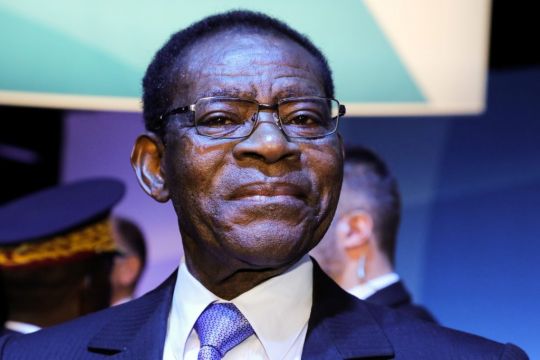Equatorial Guinea President Teodoro Obiang Nguema Mbasogo, Africa’s longest-serving ruler, is poised to extend his 43 years in power in the oil-rich country amid accusations of voting irregularities from the opposition.
In previous elections, Obiang has never got less than 90% of the vote, and one of the two opposition candidates said that the ruling party appeared to be again committing electoral fraud.
Andres Esono told journalists his party had been receiving complaints from across the Central African nation, with many voters saying they were forced to cast ballots publicly rather than in secret.
“What he is doing is massive fraud, even worse than on previous occasions,” Esono said of the 80-year-old incumbent.
Esono was one of only two candidates running against Obiang. Fourteen of the country’s opposition parties joined an alliance with the authoritarian regime, which critics have long accused of intimidation, torture and corruption.
The incumbent president expressed optimism about the outcome after voting alongside his wife, Constancia Mangue de Obiang.
“I am sure that the victory belongs to the Democratic Party of Equatorial Guinea,” he said.
In the streets of the capital, Malabo, Obiang’s posters have flooded public spaces in recent weeks with the message: “Vote for the right way, vote for continuity.” Only a handful of opposition posters could be seen.
At a final campaign event in Mongomo last week, the president shouted to the crowds: “Who’s your papa?” He urged voters to keep him in power, warning of the risks of political upheaval.
Despite its riches, Equatorial Guinea has a dramatic gap between its privileged ruling class and much of the population, who live mainly on subsistence farming.
Obiang seized power in a 1979 coup, overthrowing the country’s first president since independence from Spain in 1968.
Critics say Obiang has built a system of corruption unmatched in Africa, forsaking an extraordinary opportunity to lift his country’s people out of poverty when oil deposits inflated the country’s gross domestic product by more than 5,000%.
Human rights groups say his regime has resorted to intimidation, torture and execution, going so far as to hunt down opponents and alleged coup-plotters in other countries and forcibly return them to Equatorial Guinea, where they were sentenced to death.







